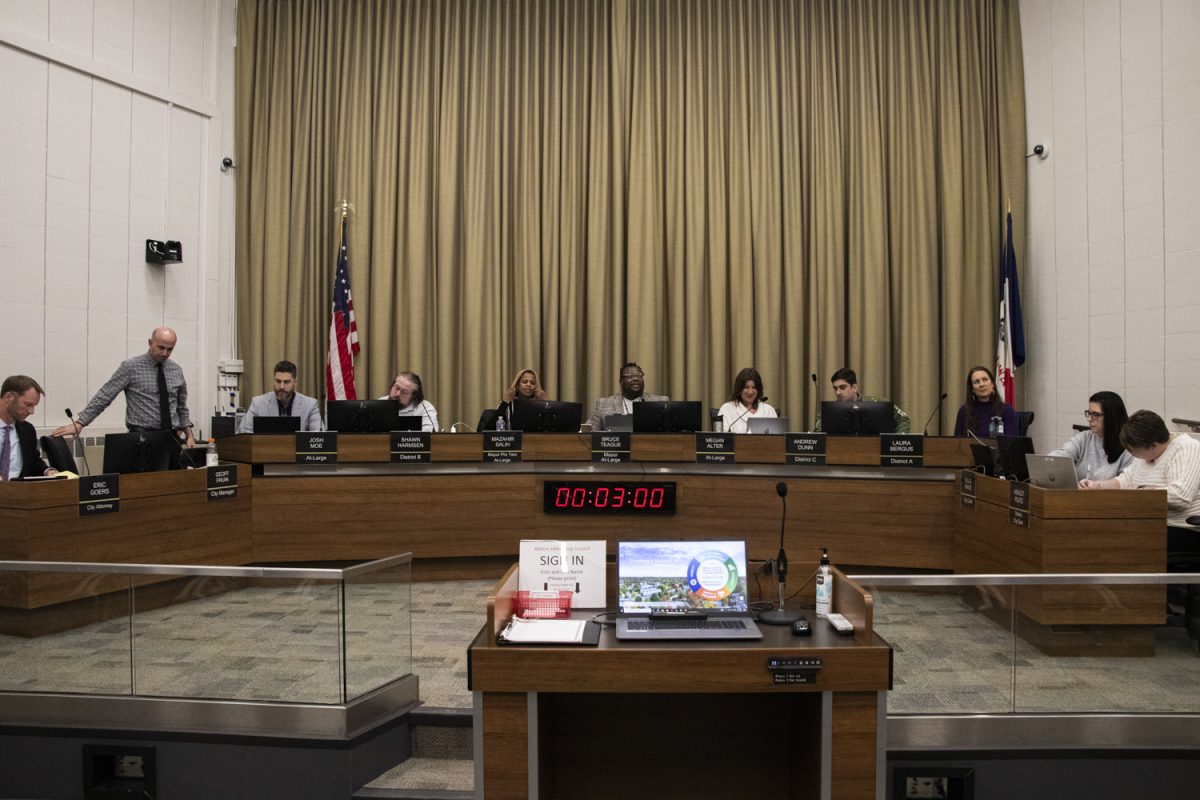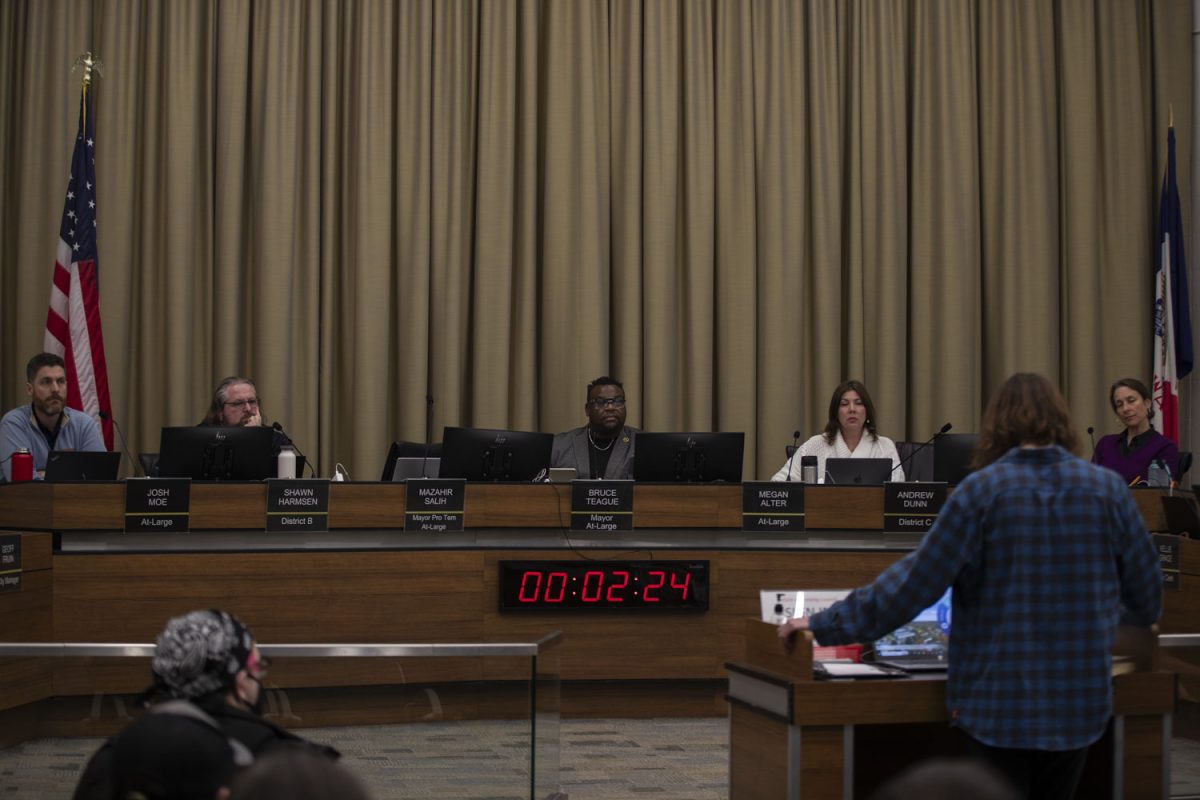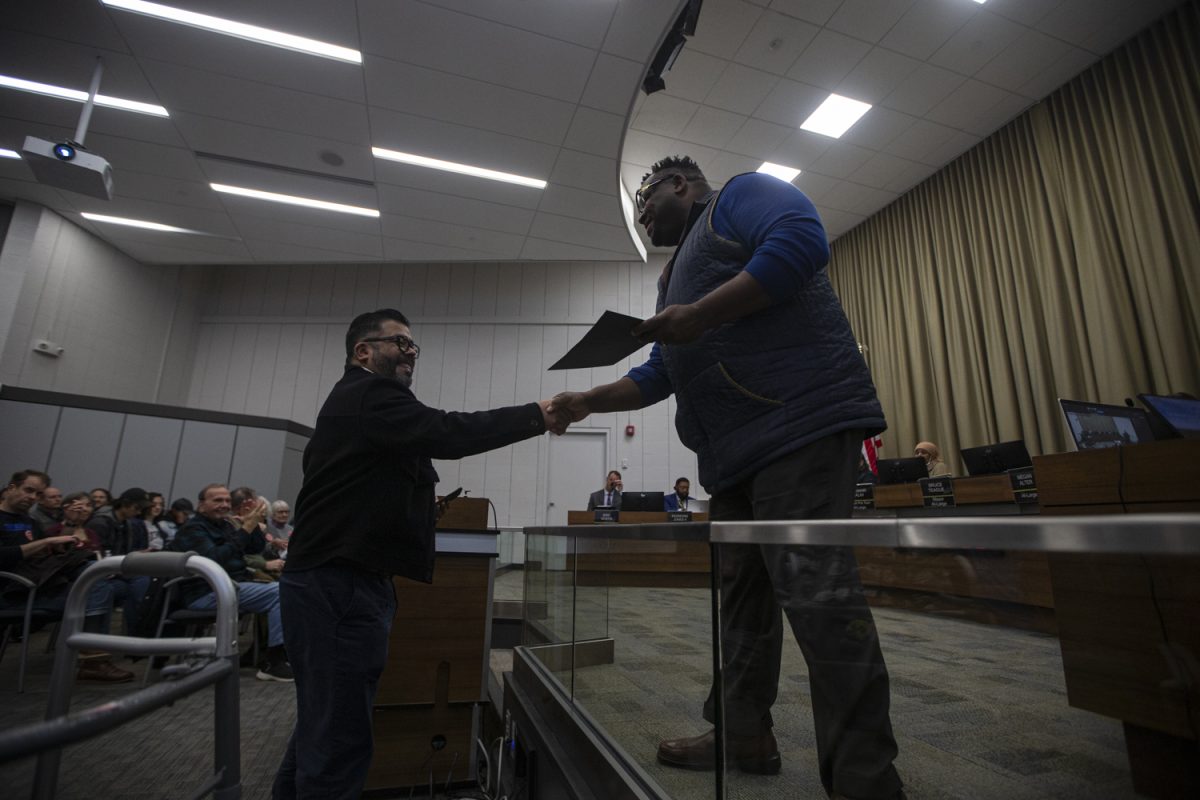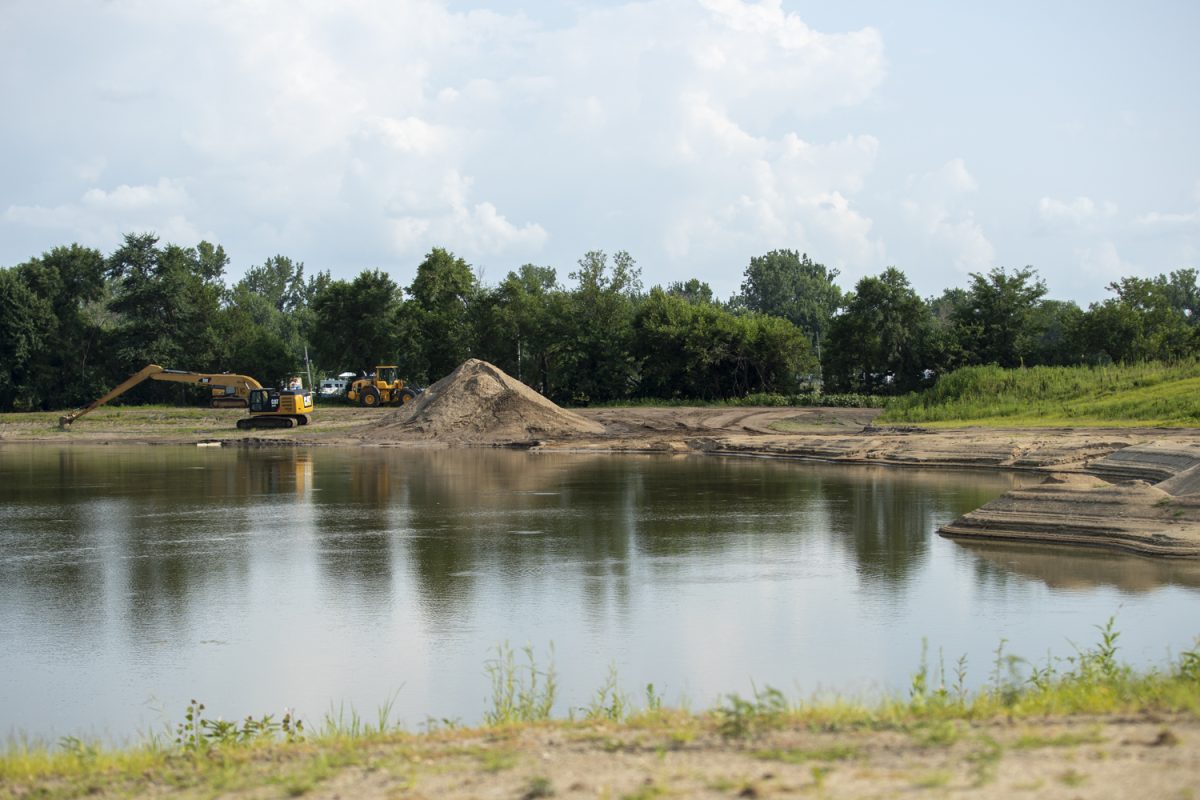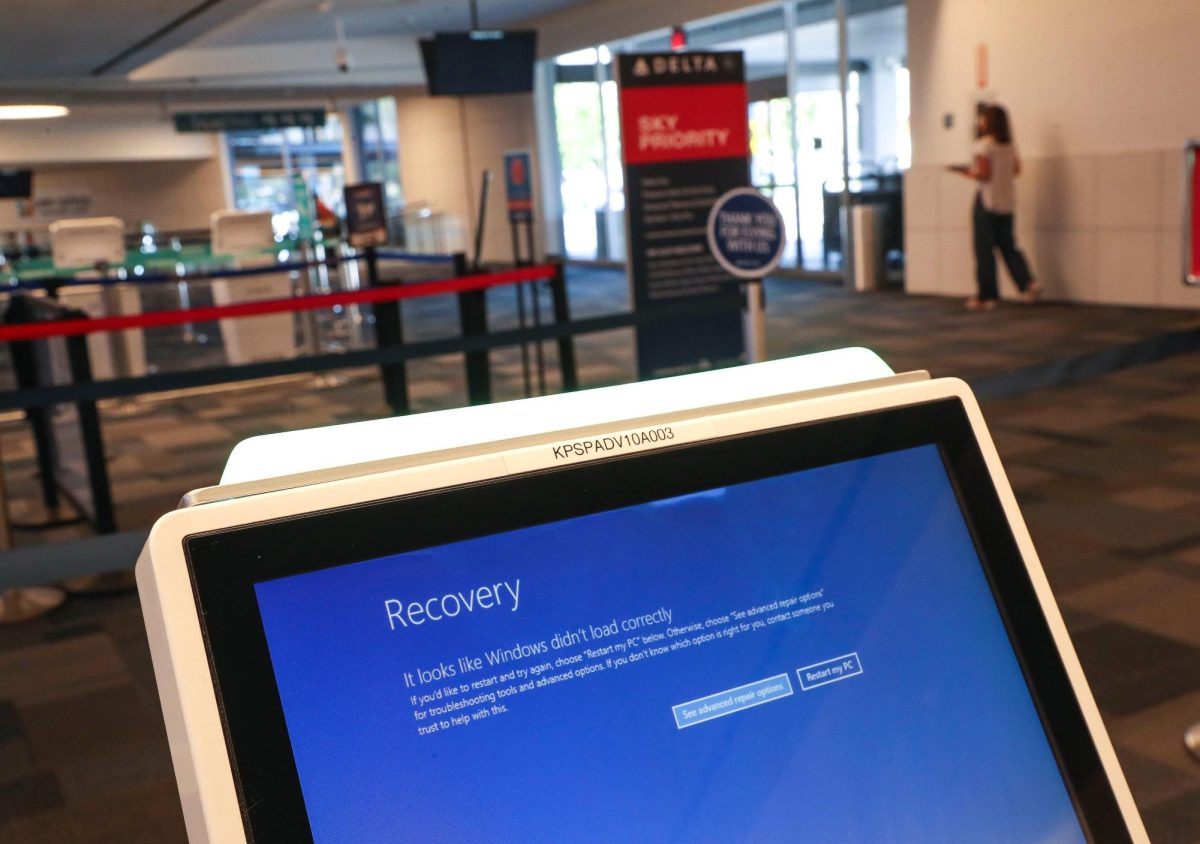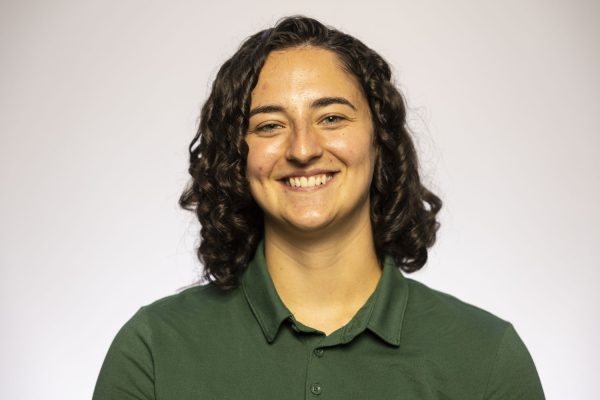When Laura Westemeyer searched for a building to buy and lease 12 years ago, 811 E. College St. immediately jumped out to her because of its rustic exterior bricks, glossy hardwood floors, and antique lighting fixtures.
Now, the College Street building has become a source of confusion and frustration.
Westemeyer is amid an ongoing disagreement with Iowa City’s Historic Preservation Commission and city staff about the installation of a new heating and air conditioning system to her College Street property in July 2022.
The commission and staff said the new system’s installation was not approved by the commission before being installed, and the pipes jutting out from the building reportedly violated the city’s historic preservation regulations. Westemeyer said the systems were installed with care and will not harm the exterior or historic materials of the building, thus following the city’s historic regulations.
When a historic building becomes preserved, the property owner must follow specific guidelines and apply for a permit to make any exterior changes that would alter the exterior of the building or its materials, according to the city’s code.
Westemeyer said she did not apply for a permit because she did not think the heating and air conditioning systems would be an exterior change, as the units are entirely indoors except for piping that drains water from the units.
The Historic Preservation Commission voted at its Dec. 14, 2023, meeting that Westemeyer would have to relocate the pipes that face the street, paint all other pipes red to blend in with the building, and repair any damage to the bricks of the building with matching bricks and mortar.
If Westemeyer made these changes, the commission deemed that the building would then comply with the historic preservation code. However, Westemeyer challenged this decision as she did not agree with the units being a change to the building’s exterior.
Westemeyer also said these changes would cost her at least $15,000 and would lead to more maintenance needed in the building because it would not follow the best practice of installation for the specific kind of system.
At its Feb. 20 meeting, the Iowa City City Council voted 6-1 to uphold the commission’s decision and said the commission made an appropriate decision based on the information they had at the time. Mayor Pro Tem Mazahir Salih was the lone dissenting vote.
At the meeting, councilors sympathized with the frustration Westemeyer expressed but said the historic preservation committee’s call was reasonable based on its code and the information presented to it. Councilor Josh Moe, who is a local architect, voiced this sentiment at the meeting.
“This is my line of work, when I’m not sitting up here, is to do historic preservation design, and it is complicated,” Moe said. “So, I have complete empathy for the difficulty that it can take and the time that it takes.”
In an interview with The Daily Iowan, Westemeyer said the old boiler and air conditioning system would leak, which made her worry the leaks would erode the historic materials of the building. The heating system also worked poorly, breaking down several times and making loud banging noises, which disturbed tenants, she said.
While owning a historic property has brought her closer with her tenants and her family, being a historic property owner can be an “arduous journey,” said Westemeyer.
“Historic buildings are beautiful, but we tend to have a few more clogs and a few more challenges,” Westemeyer said.
The various codes and rules that historic property owners have to follow can be confusing and hard to follow, Westemeyer said.
To try to curb this confusion, city staff mails a yearly letter to historic property owners reminding them of their property’s historic status and any new changes to the historic preservation code, said Jessica Bristow, the city’s historic preservation planner.
Another issue Westemeyer said historic property owners can run into is the higher cost of historic materials. According to city code, if a portion of a historic building must be repaired, compatible and visually similar materials must be used to maintain the character of the building.
RELATED: Pagliai’s Pizza building could potentially become historical landmark
Bristow said historic materials are often cheaper and more durable than modern materials, but in the case a property owner cannot afford the materials or labor costs, the city has its own grant program to help with the cost.
However, there are some stipulations to be followed with this program. The person applying must live in the property they are looking to repair — meaning it does not apply to landlords — and the person must also have a lower income, specifically 140 percent of the median income. The grant can cover up to $5,000 of a project.
Bristow said she doesn’t feel that there really is a much higher cost associated with owning a historic building instead of owning a non-historic one.
“If someone cares about the appearance of their building, they’re probably going to keep the appearance the way the historic guidelines would require anyway,” Bristow said. “So, I’m not sure I agree with that argument that there’s a higher cost.”







